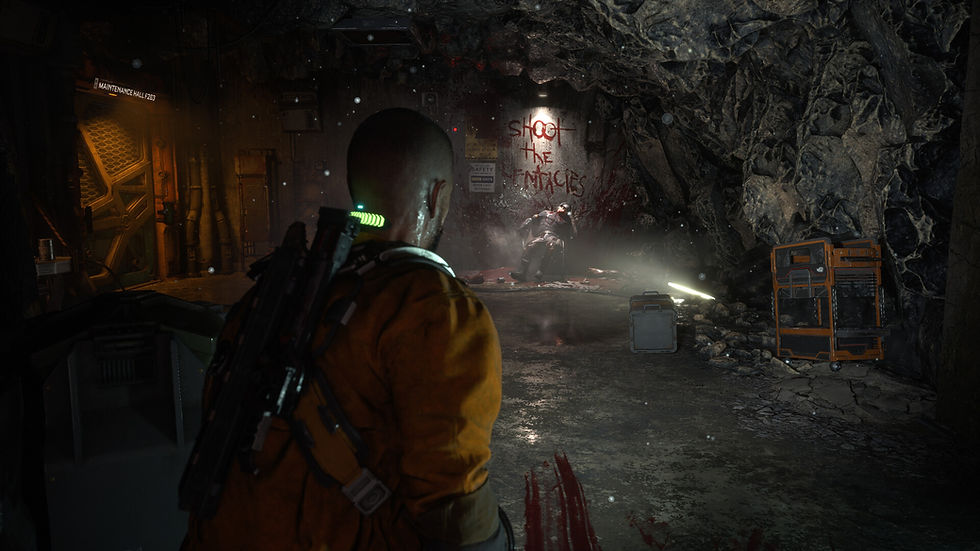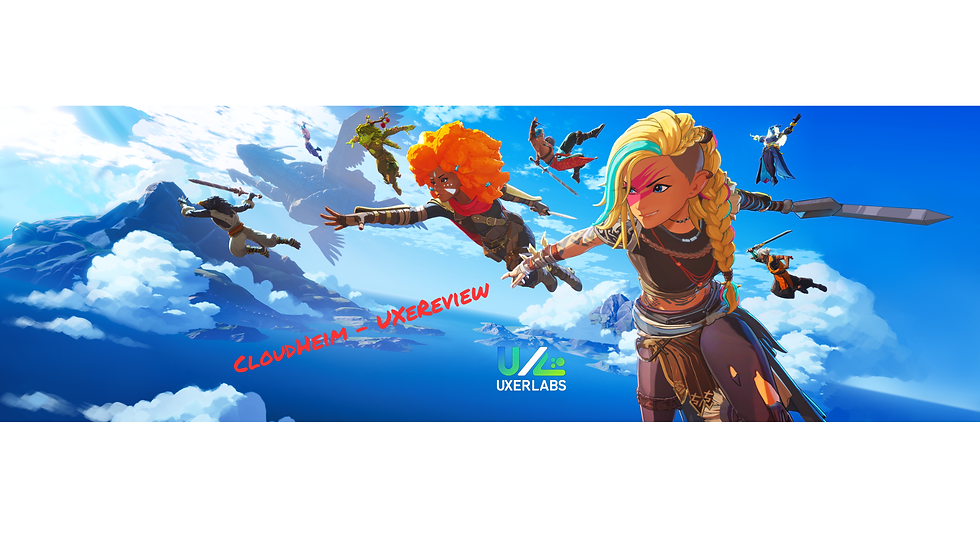The 5 common mistakes I see in indies games.
- Nicolas Ferron
- Sep 1
- 5 min read
Developing a game is always an adventure. Developing a game as an indie? Now that is a crazy one.
Low budgets, time restrictions, intense competitions, endless tasks, you name it. And for most solo developers working on their game after hours: it is a passion more than anything. One that requires grit, dedication and a whole lot of organizational skills.
Of course, nobody can get everything perfect. But some pitfalls are avoidable, and doing so will differentiate a noticeable game from a struggling one.
So here are the 5 most common mistakes indies developers make, and how to avoid them :
1- Forgetting accessibility options.
Games are for everyone. It does not stop at genre, ethnicity nor your physical capabilities. We’ve seen incredible support from big companies in the past years (Xbox and Logitech Adaptive Controllers for example), and whilst understandable that under strict time and resource limitations, I’ve seen so many indie titles skipping that part.
A few options go a long way and I think that features such as Subtitles, including color and size, some colorblind options and the ability to remap the controls should be always included.
You can lose a part of your audience without those and it does not require a crazy amount of work to a minimum of inclusivity.

2- Mistake passion for glory.
We all know the song and, look, creating a game, especially indie ones or even solo devs is a daunting task.
More often than not it is a passion project and we can see all the heart and soul poured into it. There are various examples of games that were a brilliant idea that materialized into an incredible game (Stardew Valley, Undertale, Animal Well among others). There are also countless ones that we don’t even know exist.
When you do your own game, programming is just a part of the whole thing. You have to do design, programming, and marketing. The UX/PX aspect is not at the top of the list, but it should be.
I did some tests recently and whereas the ideas were great, the gameplay itself was not thought of from a player’s perspective.
For example, in the last test I did, the player was requested to do a simple task. The idea was to move an item on the screen. It required no less than twelve steps.
Or if you do a puzzle game, the solution may be logical to you but not obvious for most.
This is symptomatic of developers being busy with a lot of things and forgetting that the main goal is to have fun.
Fortunately there are easy fixes for that. First, playtest your game, make people try it. Budgets are tight, but this does not have to cost a lot. Start with friends, family, but gather external feedback. What you envisioned may not be crystal clear for everybody.
There are also specialized people to do that for very affordable rates! (Yes it is a shameless plug! ).
The idea is that you can’t think about everything for yourself and external feedback is crucial.
And speaking of feedback…
3- Silent development.
The public, the gamers, can be brutal.
And sometimes you are afraid to put your creation in their hands. Feedback may be cruel, it may crush some things you think you did well. It is crucial for the success of your game.
Never forget who you are making the game for.
Don’t try to please everybody, this will not happen. If you are making an RPG, aim to please RPG fans.
Inspiration is a good thing. You don’t have to reinvent the wheel, you also don’t have to clone another game. It really helps to see what works and what doesn’t.
And the sooner you gather feedback the better. Let’s face it, you thought you had the best game ever, and when you release it, reviews come in and it crashes and burns. It is too late now.
Better to have your feelings a bit hurt than spend thousands of hours (and euros) on an anonymous game.
4- Making it pretty but shallow and chasing trends.
I’ve seen devs so focused on making the game look nice, they forget it is actually a game.
A beautiful game will instantly attract players. But if there is nothing behind and - Steam refunds being a thing- it’s a risk you can’t afford.
The first step in your game should be to test your core gameplay. Design a vertical slice and test it, again and again.
Also, looking at what sells and making “one more of those” is rarely a good business plan. Unless you just want to flip assets, but in that case, get out of here!
If you do not bring something original to the table you will face fierce competition. As an indie dev you do not have the proper resources to market the game in front of bigger fishes.
Try to be original, try bringing a twist.
I am not here to tell you to make a game or not. Just know what you are going into, and set your expectations accordingly.

5- I have no money so my game is barebone.
And speaking of expectations, indie devs, and even more for solo devs, are limited in resources. That is an understatement. And you will often hear it as an excuse: But… I have no money.
Totally understandable. However, remember that nowadays the best tools are free or very cheap. And what will determine your game’s progress towards being a GOTY is where you put your resources.
In project management we have the scope. And the scope is everything. You want to make a game? Define your game scope and stick with it.
You want to make an RPG? Go on! But it does not need to be an open world. It does not need to be fully voiced, it does not need to feature 16 classes with sub-classes. You simply don’t have the money to do this.
Setting your own limits and sticking to it is the secret. Better to have a limited game that works and is fun than a feature-packed game where nothing works.

Are we rich yet?
Being an indie dev is hard. Making a game is hard. But there is no reason to neglect the user experience. It should always, and I insist: ALWAYS be at the core of your game.
You may have a few euros, a good idea, and that’s already enough to create a fun game.
You will not be able to compete with EA, Ubisoft and other giants.
And that’s a good thing. Indie games bring creativity, audacity, and that’s why I, and many other gamers, love them.
There are enough AAA beautiful, boring, cloned games. Avoid those pitfalls and you could be the next Billy Basso, LocalThunk and why not, snag a GOTY or two.
And if you need help, you know where to find me.




Comments